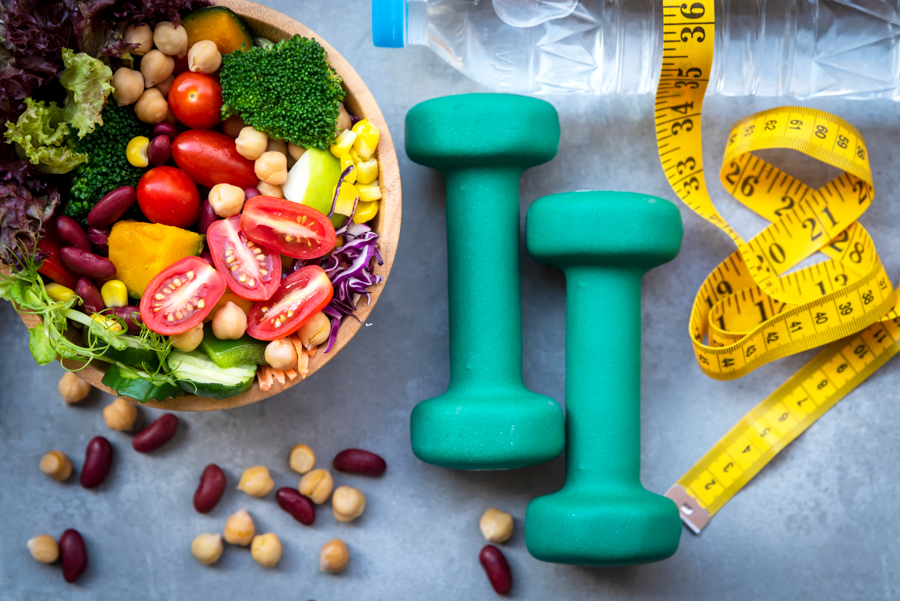A person’s nutrition is one of the very first things to be affected when a person gets into alcohol addiction. It is not uncommon for people to fall ill or even lapse into a life-threatening condition due to alcohol addiction-induced malnutrition. The National Center for Drug Abuse Statistics (NCDAS) puts the number of Americans who died from alcohol-related causes in 2022 at 140,557, and as trends go, this number is not expected to decrease. To make things worse, alcohol-related illness and death are completely avoidable, which makes knowing things like an alcohol recovery diet and taking addiction treatment more important. Magnolia City Recovery offers different levels of care for treating alcohol problems such as:
What are the Effects of Alcohol on Nutrition?
It is a known medical fact that alcohol inhibits the breakdown of nutrients taken from food into usable material by decreasing the secretion of digestive enzymes from the pancreas. Alcohol further impairs the digestive process by damaging the cells that line the stomach, thereby decreasing nutrient absorption, and also by disabling the transport of some nutrients into the blood. Food needs to be properly digested so that the nutrients taken from it are readily available for energy and maintenance of bodily structure and function. The nutrients from digested food are absorbed from the intestines into the blood and distributed to where they are needed. Alcohol intake greatly disrupts this process.
Nutrient absorption has always been a problem with people who drink heavily or regularly. Most people who engage in chronic alcohol intake get at least half of their calories from alcohol, mainly because they are so focused on drinking that they make poor food choices or do not eat enough. This situation is made worse by the way alcohol influences the function of the midbrain. The midbrain is mostly associated with motor control, but it is also seen as being involved in the increased cravings for alcohol and decreased desire to eat. Improper eating habits will quickly become problematic because the body will work through its nutrient stores and not have enough new nutrients from food to work properly.
Improper eating habits due to alcohol intake will greatly deprive the body of protein. The cells of the body are mostly made up of protein, and damaged cells can only be regenerated if there is enough protein intake. Alcohol is known to affect protein nutrition in a number of ways:
- Impaired digestion of proteins to amino acids
- Impaired processing of amino acids by the small intestine and liver
- Impaired synthesis of proteins from amino acids
- Impaired protein secretion by the liver
Alcohol intake will also significantly affect the normal functions associated with nutrient and vitamin storage and metabolic processes. As alcohol is metabolized by the liver it uses whatever available niacin, thiamine (vitamin B1), and other B vitamins that are present in the body, depleting these essential nutrients and depriving the body of their use when needed in other critical functions. To make things worse, alcohol interferes with the absorption and storage of the vitamins B12, folacin, and vitamin A, meaning what was depleted will not be re-absorbed fast enough to make up for the deficiency.
Alcohol is a potent diuretic that increases the output of urine, and this increased output could lead to the loss of water-soluble minerals such as zinc, magnesium, and potassium. Zinc deficiency interferes with the ability to taste and smell, and those who cannot smell or taste food are less likely to have any inclination to eat even if they are hungry. This increased urine output is also certain to lead to dehydration, which is mainly why a person feels terrible the morning after a session of drinking.
Other adverse effects of alcohol intake on proper nutrition include:
- Poor nutrient absorption
- Impaired digestion
- Problems with the body’s ability to use available nutrients
- Less nutrient storage in the liver
- Damage to the stomach lining
- Liver damage
- Critical nutrient imbalance (folate and thiamine)
- Abnormal loss of nutrients in urine and feces
- Cellular damage due to lack of protein
- Significant weight gain or loss
- Severe dehydration
- Loss of appetite
- Hypoglycemia (severe decrease in blood sugar levels)
- Osteoporosis
- Impaired healing of damaged tissues
- Decreased ability of the blood to clot
- Neurological damage Night blindness
Due to the fact that humans need food and the nutrients that come with it, any nutrient deficiency is sure to manifest shortly in highly noticeable ways. These include:
- Uncharacteristic weight loss
- Chronic fatigue
- Persistent feelings of weakness
- High susceptibility to disease
- Decrease or loss of appetite
- Inability to concentrate
- Depression
- Difficulty in thinking
- Increased risk of organ damage
What is the Best Alcohol Recovery Diet?

During or after an alcohol detox in Houston, following a healthy diet is the only non-medical way a person could recover from the damage caused by severe nutrient loss due to alcohol addiction. A healthy diet has also been proven to greatly aid in a recovering alcoholic’s efforts to stay sober, as a healthy person is less likely to suffer from the emotional and mental anguish experienced when the urge to take alcohol takes hold.
Hydration
Anyone who has ever taken too much alcohol would be familiar with the vomiting that follows heavy drinking. Combined with frequent urination, the ultimate effect is dehydration, which leaves the person feeling weak, sickly, and close to injury. Alcohol is known to block the brain from creating a substance called antidiuretic hormone (ADH). ADH typically prevents dehydration by preventing excessive urination, and when the body stops making ADH after heavy drinking, the excessive urination that follows contributes to the dehydration process.
One of the most important things in the process of recovery is staying hydrated. During recovery, however, it is crucial to understand how much water is safe for intake. This is because certain medical conditions like heart disease and heart failure can affect how much water is safe for a person to ingest. Hydration is also important to restore the proper electrolyte balance in the body, although some food items are also good sources of electrolytes mixed in with water content, including:
- Yogurt
- Avocados
- Watermelon
- Beans
- Potatoes
- Broccoli
- Peaches
- Green tea
Fresh Fruits, Vegetables & Lean Meats
Healthy and natural foods are far better than processed foods during the recovery period as these help in stabilizing blood sugar levels and overall health. A liver made unhealthy by chronic drinking could be put under additional strain if a person indulges in processed foods during recovery. Most nutritionists recommend a diet of at least 45% carbohydrates, 30% healthy fats, and 25% protein during recovery to help speed up the recuperation process.
Carbohydrates
Carbohydrates provide a steady source of energy for the body and typically include fiber, starch, and sugars. It is important to choose healthy, complex carbohydrates that break down slowly in your body over simple carbohydrates, as this can help avoid blood sugar swings, plus the fiber from these complex carbohydrates may lessen alcohol cravings and help clean out the system of toxins. Some of the best sources of carbohydrates include:
- Fruits
- Vegetables
- Brown rice
- Wild rice
- Oats
- Amaranth
- Millet
- Spelt
- Beans
- Whole grains
- Quinoa
- Barley
Healthy Fats
Despite what many might think, fats are also needed in a healthy alcohol recovery diet because they are the most energy-dense nutrients available. Fats are important for cell function in the body and play a crucial role in helping in vitamin and nutrient absorption. While it is true that there are types of fat that are not healthy, some fats are not just healthy, but necessary. Healthy sources of fat include:
- Olive oil
- Flaxseed oil
- Coconut oil
- Butter
- Avocados
- Salmon
- Walnuts
- Chia seeds
Protein
Under normal circumstances, protein is a needed nutrient that is an essential building block for muscles and tissues in the body. Heavy alcohol intake is known to damage cells and speed up any existing cellular damage in the body, the most essential of which include cells in the liver and pancreas. Getting enough protein while in recovery helps to repair the cellular damage and fortify cellular structure once more, while keeping blood sugar levels stable. Good sources of protein include:
- Nuts
- Eggs
- Lean red meat
- Chicken
- Turkey
- Fish
- Soy
- Lentils
Vitamin B9
Folic acid levels in the body also drop sharply due to alcohol addiction, and this nutrient is essential to prevent anemia, general weakness, chronic fatigue, and mood swings. Getting enough Vitamin B9 could help significantly with recovery from alcohol abuse. Vitamin B9 (folate or folic acid) could be found in:
- Enriched bread
- Flour
- Cornmeal
- Paste, Rice
- Breakfast cereals
- Beans
- Peas
Magnolia City Can Help You with Alcohol Addiction and Nutrition Recovery

The body could only take so much neglect and abuse before it starts to exact a heavy toll for it. This is why recovery is often immensely difficult for many people, mainly because they also have to get healthy first as well. It might be a difficult process, but with the proper approach and choosing the right detox center in Houston, it could be made easier. We here at Magnolia City know this by heart, because we have helped many people back on the road to recovery, and even helped them stay on it for the long haul. We can help you recover. Talk to us now.

















